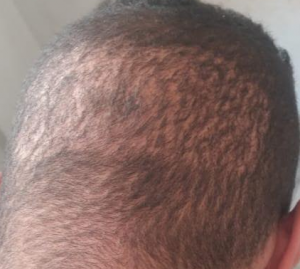It has been about six weeks since I’ve posted an entry about hair cloning, but I’ll revist the topic again because I get quite a few requests for information. People generally want to believe that cloning is just around the corner.
Why can’t we clone hair, since scientists can clone a sheep? When can we expect to get a cloning treatment and how will it be done?

When it comes to cloning, hair follicles are in a tough spot. They are too complex to be simply cultured because follicles are not whole organisms like Dolly the sheep. The focus of cloning for hair is to move cells that can stimulate growth from a normal hair follicle, to an abnormal (genetically impaired) hair follicle. Although this is not actually cloning, the growth stimulating cells from the normal hair follicle can potentially be multiplied in a Petri dish and then moved to the area of genetically impaired hair. Some of these cells are capable of turning themselves into hair, bone or muscles and this has been shown in what I will call ‘uncontrolled experiments’. Because people who are balding always have some non-genetically impaired normal hair, we do not need a person to person transfer.
There are problems that are yet to be solved. The primary problem is to identify which cells are to be moved. Other problems are once the cells have been identified. We must ask, “Can we successfully create enough of these cells to work with, and is there certainty that the cells that are created and moved will maintain their capability to stimulate growth in the genetically impaired hair follicles?” It is anticipated that whatever process we come up with, there will be a type of medical ‘soup’ which the doctors will inject into the genetically balding areas of the scalp. When they are injected into the balding scalp, they must consistently be able to stimulate hair growth. Unfortunately, the success of this entire process has been relatively low so far. There have been some successes, but these have not been replicable, suggesting that we do not have control of the process. We also have to be 100% sure that this process is safe. Do we know that these cells will not produce a cancer or other problem? Safety and effectiveness is critical for any FDA approval and it will take years for this to be worked out. Don’t hold your breath, no matter what you hear!
For more information, Dr. Bernstein wrote an article about hair cloning in our 2004 NHI Newsletter, available here. Adobe Reader is required to view the file.
To read more newsletters, medical publications, and the PDF version of The Patient’s Guide to Hair Restoration, please see the NHI Medical Publications page.


